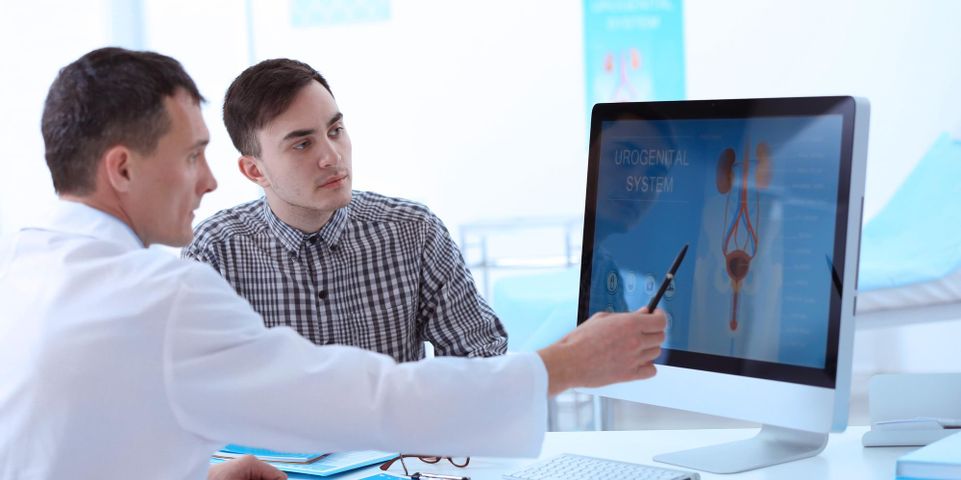
Dysuria, or painful urination, is indicative of a problem in the bladder, perineum, kidneys, urethra, or another body part in the pelvic area. The pain may be sharp and stabbing or dull and throbbing, and it’s often accompanied by a stinging or burning sensation. From kidney stones to infections, here are some of the most common causes of such pain—and the best ways to treat them.
3 Common Causes of Dysuria
1. Kidney Stones
As their name implies, kidney stones are mineral deposits that develop within the kidneys. While there’s no single cause that contributes to the formation of kidney stones, risk factors include failing to drink enough water, consuming a diet high in sodium, and having a high BMI.
If the stones are relatively small, it may be possible to pass them simply by drinking water. For larger stones, treatments include extracorporeal shock wave lithotripsy, which involves breaking up the deposits using sound waves and minor surgery.
2. Urinary Tract Infections
 Painful urination is one of the most common symptoms of urinary tract infections (UTIs). Such infections develop when bacteria enter the urinary tract through the urethra and multiply. Because of their efficacy, antibiotics are often the first line of defense for UTIs. The course of treatment usually lasts for one to two weeks, but if you have recurring infections, your doctor may prescribe a low-dose of antibiotics for six months or more.
Painful urination is one of the most common symptoms of urinary tract infections (UTIs). Such infections develop when bacteria enter the urinary tract through the urethra and multiply. Because of their efficacy, antibiotics are often the first line of defense for UTIs. The course of treatment usually lasts for one to two weeks, but if you have recurring infections, your doctor may prescribe a low-dose of antibiotics for six months or more.
3. Sexually Transmitted Infections
Gonorrhea, chlamydia, and herpes may not manifest symptoms for some time, but once they do, painful urination is usually one of them. Treating any such sexually transmitted infections (STIs) will depend on whether they're bacterial or viral. Antibiotics can effectively combat gonorrhea and chlamydia, for example, while antiviral drugs can help manage herpes.
If you have dysuria, turn to Medical Center Urology for diagnosis and treatment. Located in High Point, NC, this practice is led by Dr. Richard Puschinsky, who's been in the field for more than 25 years. He and his team are committed to going above and beyond for their patients, whether they're treating kidney stones or managing erectile dysfunction. To learn more about the conditions they're equipped to handle, visit their website. To schedule an exam in the Triad area, call (336) 882-0220.
About the Business
Have a question? Ask the experts!
Send your question

